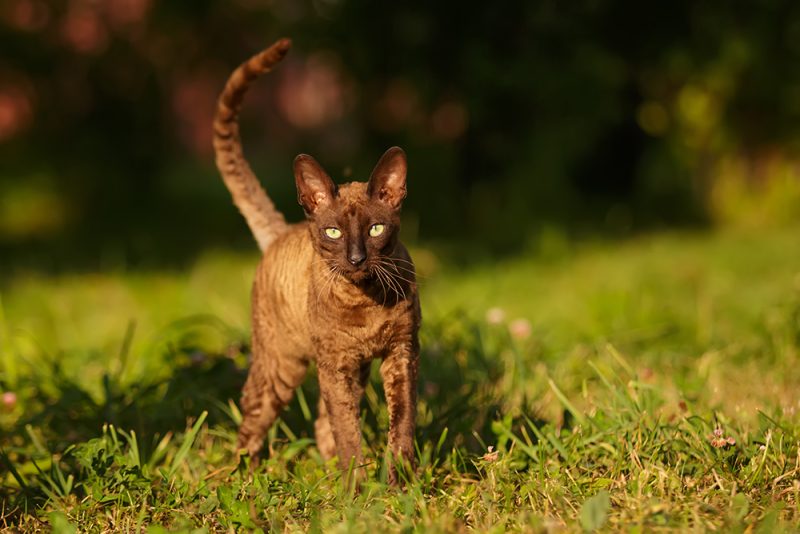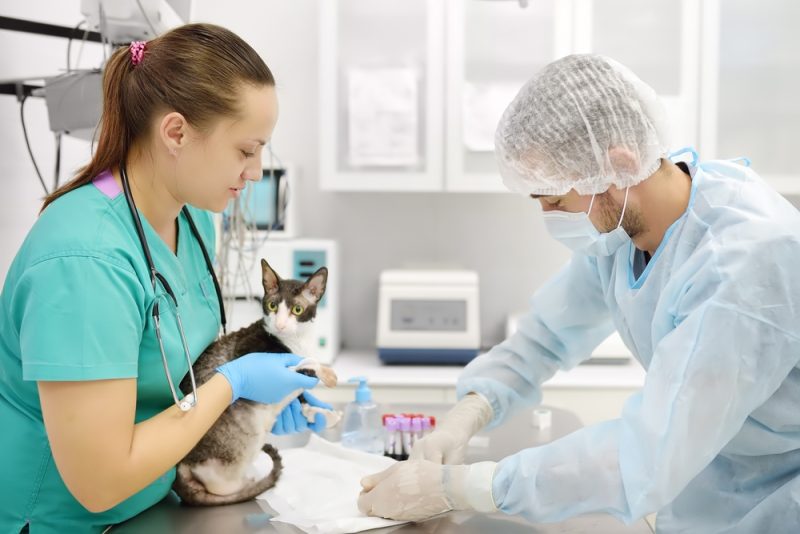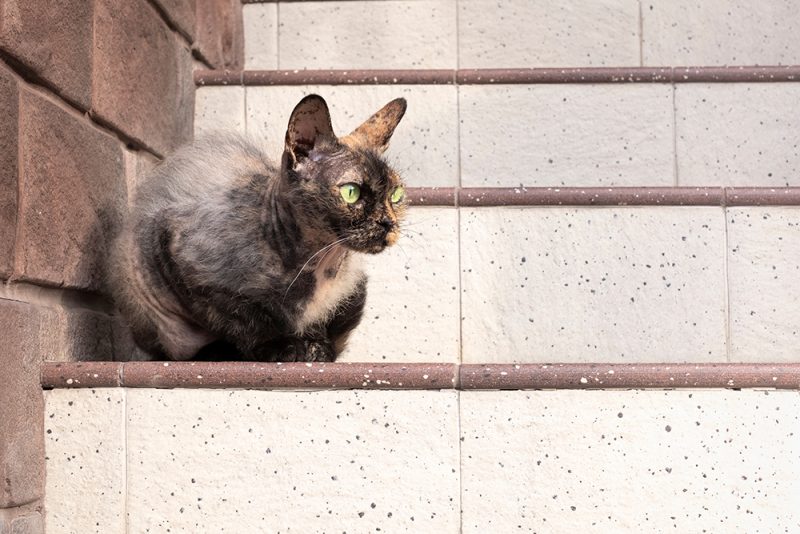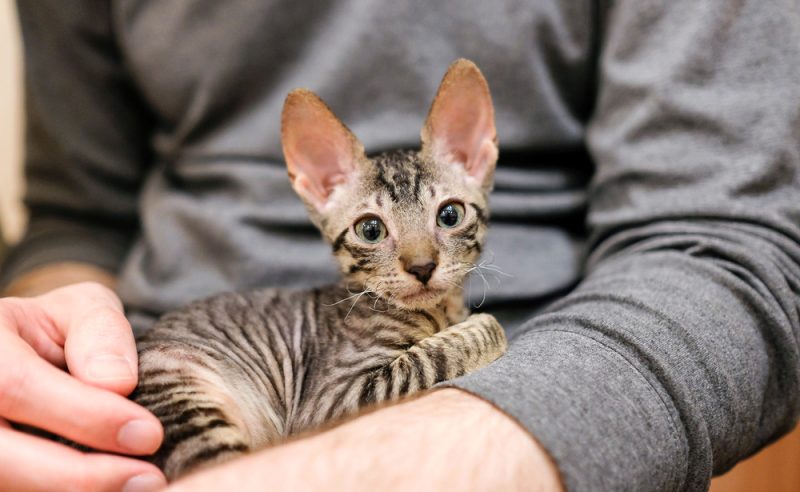The post 10 Cornish Rex Health Issues You Should Know (Vet Answer) by Dr. Stacie Grannum DVM (Veterinarian) appeared first on Catster. Copying over entire articles infringes on copyright laws. You may not be aware of it, but all of these articles were assigned, contracted and paid for, so they aren't considered public domain. However, we appreciate that you like the article and would love it if you continued sharing just the first paragraph of an article, then linking out to the rest of the piece on Catster.com.
The first Cornish Rex kitten was born in Cornwall, U.K., in the 1950s due to a genetic mutation.1 This breed is known for its very fine, short coat. While Cornish Rex cats are generally healthy, pet parents need to be aware that they can develop health issues that may require veterinary attention.

The 10 Potential Cornish Rex Health Issues
If you are considering adding a Cornish Rex to your family, please keep in mind the following health issues that your new kitty may be predisposed to.

1. Autosomal Dominant Polycystic Kidney Disease (AD-PKD)
This genetic condition results in the growth of fluid-filled cysts on a cat’s kidneys. Felines born with this disorder develop multiple cysts over time, which can lead to kidney damage. However, not all cats may exhibit signs. Unfortunately, there is no cure for AD-PKD, but proper management by your veterinarian can help.
2. Progressive Retinal Atrophy
This inherited condition causes the degeneration of the retina, eventually leading to blindness within 3–4 years after the signs appear. There is no cure for this disorder.
3. Hypertrophic Cardiomyopathy
Thickening of the heart muscle makes it difficult for the heart to pump blood effectively. This disease may be inherited, or it can develop secondarily to another disease, such as hyperthyroidism.

4. Neonatal Isoerythrolysis (NI)
Many domestic cats have type A blood, but Cornish Rex cats most often have type B blood. NI happens when a type B mother gives birth to a type A kitten or vice versa, and the kitten ingests the different blood type’s colostrum from the mother. When this occurs, the antibodies that are usually beneficial start attacking the kitten’s red blood cells. Affected kittens typically die within a few days.
5. Vitamin-K-Dependent Coagulopathy
Cornish Rex cats may suffer from a genetic disorder that affects their blood-clotting ability. This condition is due to a deficiency of an enzyme that helps absorb vitamin K, a vital component of the clotting process. As a result, affected cats may have prolonged bleeding and be more susceptible to bruising.
6. Feline Infectious Peritonitis (FIP)
Cornish Rex cats seem to be more at risk for developing this disease than other cats. This virus damages blood vessels, which can cause fluid to build up in the abdomen or chest. Unfortunately, there is no treatment for FIP, and the disease is often fatal.

7. Deafness
Certain genetic lines of Cornish Rex (C-rex bloodline) may be susceptible to deafness.
8. Patellar luxation
This occurs when the kneecap pops out of place. Cornish Rex cats are at a higher risk than other cats.
9. Skin Issues
Due to their fine and short coat, Cornish Rex cats may be susceptible to skin problems, such as yeast infections, itchiness (urticaria pigmentosa), thinning or balding coat (hypotrichosis), and sunburn, if they’re not adequately protected from the sun.

10. Dystocia
Cornish Rex cats may have difficulty giving birth to kittens. Their litters may need to be delivered by C-section. This breed carries a higher risk of death for both the mother and her kittens than with other breeds of cats.

Conclusion
The Cornish Rex is a playful and intelligent cat that makes a great companion. While this breed is relatively healthy, there are certain associated health issues that you should be aware of. Always do your research, learn as much about the breed as possible, and schedule regular veterinary exams to detect problems early and to keep your cat as healthy as possible.
Featured Image Credit: Rita_Kochmarjova, Shutterstock
The post 10 Cornish Rex Health Issues You Should Know (Vet Answer) by Dr. Stacie Grannum DVM (Veterinarian) appeared first on Catster. Copying over entire articles infringes on copyright laws. You may not be aware of it, but all of these articles were assigned, contracted and paid for, so they aren't considered public domain. However, we appreciate that you like the article and would love it if you continued sharing just the first paragraph of an article, then linking out to the rest of the piece on Catster.com.
from Catster https://ift.tt/3LzgGiu
